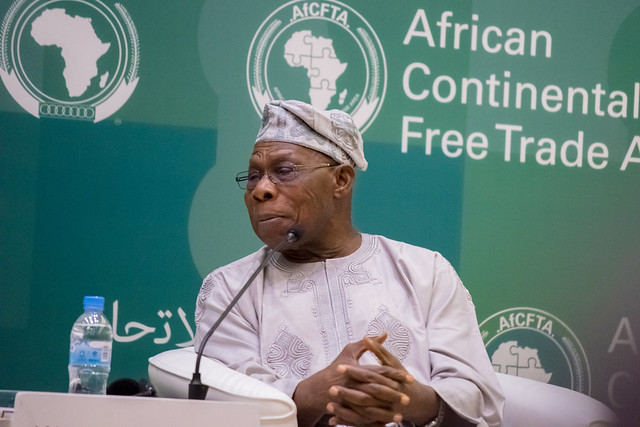The AfCFTA enters into force on 30 May

Tralac | 20 May 2019
The AfCFTA enters into force on 30 May
tralac Newsletter • Issue 11 • April 2019
Welcome to tralac’s April 2019 newsletter. This newsletter focuses on the achievement of a significant milestone for African integration.
On 29 April 2019, Sierra Leone and the Saharawi Republic deposited their instruments of ratification of the Agreement establishing the AfCFTA with the depositary in Addis Ababa. This brought the number of ratifications to 22 – the number required for the AfCFTA to enter into force, in terms of Article 23 of the AfCFTA. On 30 May the AfCFTA enters into force – 30 days after the deposit of the 22nd instrument of ratification, as specified in Article 23. See tralac’s AfCFTA Barometer. We also have a handy e-booklet providing an overview of the AfCFTA, as well as intra-African trade and applicable tariffs – available HERE.
What happens next?
We know that the negotiations on key substantive issues related to trade in goods and trade in services that are still to be completed. Rules of origin negotiations have made substantive progress and we understand that this process is nearing finality. Negotiations on tariff concessions are in the early stages. Member States are currently preparing offers. We have prepared a series of trade and tariff updates for Member States whose trade data for 2018 is already available in the public domain (we use TradeMap from the International Trade Centre). These indicate that trade in a range of products amongst African countries that are not party to the same free trade area, still attracts burdensome tariffs. These countries are trading under most favoured nation (MFN) tariffs, and the forthcoming negotiations will be to reduce reduce tariffs on trade amongst these countries. The ambition is to reduce tariffs on 90% of tariff lines – of the remaining 10%, 3% may be excluded from liberalisation and 7% may be designated “sensitive’ and be subject to longer phase down periods. This will be the contribution of the AfCFTA to reduce tariffs on intra-African trade, given that trade among the Member States of the regional economic communities (RECs) and other trading arrangements will continue according to their specific trade regimes.
This trade data and tariff analysis is available HERE. We also examine key issues related to the tariff and ongoing rules of origin negotiations; see the Blog by Willemien Viljoen on rules of origin and tariffs in the AfCFTA HERE, Specific commitments in the priority services sectors are also to be negotiated for the 5 priority services sectors (communication, transport, financial services, tourism and travel and business services). Services are important in their own right as they contribute to economic activity, trade and create employment. But they are also essential enablers of trade in goods (trade facilitators), contributors to manufacturing competitiveness and essential in the provision of social services to enhance development. 21st century economies are services-intensive. Clear strategies for Africa’s services sector development should accompany the AfCFTA processes to leverage their potential impact for Africa’s development. See the Blog by Ashly Hope on services trade HERE.
Work is also underway to establish important institutions to make the AfCFTA work – these include the Secretariat, the African Trade Observatory and also a continental mechanism to notify and eliminate non-tariff barriers – see the Blog by Vonesai Hove HERE.
At this very important point in the AfCFTA negotiations, there are many important legal and technical issues that require clarification. We have prepared a series of Blogs and Working Papers to answer these questions:
- Ratification of the AfCFTA Agreement: What happens next?
- The AfCFTA: What enters into force now and what does it mean?
- The Institutional Design of the AfCFTA
- What is still required for a complete AfCFTA Deal?
- What happens to the RECs once the AfCFTA is in force?
Although we are still focused on finalising phase 1 of the AfCFTA negotiations, and what happens now as the Agreement establishing the AfCFTA enters into force, we need to be preparing for phase 2 of the negotiations. These wills start in the second half of this year. These negotiations will cover cooperation in investment, competition and intellectual property rights. We examine important issues related to these matters in a series of Blog posts: intellectual property rights (Abrie du Plessis); investment policy (Talkmore Chidede); and competition (Trudi Hartzenberg).
The complex AfCFTA negotiations have benefitted from strong political support, and have proceeded at an unprecedented pace. Against the background of the crisis in multilateral trade governance, a trade war between the world’s two largest trading nations and a seemingly intractable attempt by the United Kingdom to leave the European Union, this is very good news. We are mindful of the fact that much remains to be done before trade in goods and services under the AfCFTA can begin. We need to remain committed to the process. Collective efforts will be required to bring the process to completion and then to effectively implement Africa’s comprehensive trade pact.
tralac has been supporting the AfCFTA process since 2012, when the important announcement was made that the Member States of the African Union would establish a continent-wide free trade area – and we remain committed for the long haul. A functional AfCFTA that contributes to Africa’s development is in all our interests, in Africa and globally.





